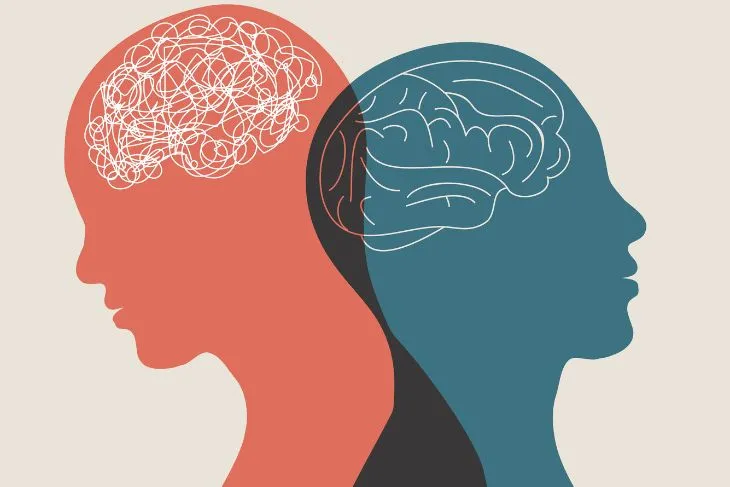Encephalitis is a rare, but very serious infection that causes swelling in the brain. Numerous types of viruses can cause encephalitis, and like many serious infections, young children and the elderly are at a higher risk of severe illness and complications.
The good news is, many viruses that can cause encephalitis now have a vaccine, greatly reducing the risk of developing this potentially deadly condition. Being aware of the signs and symptoms of encephalitis can help prevent a serious infection before it’s too late…
Fever
Fever is unfortunately and frequently a sign of many illnesses, everything from the common cold and flu to allergies, inflammation, and serious medical conditions like cancer. However, fever can also be a symptom of encephalitis, though it’s not always obvious that it’s caused by such a potentially serious infection. Because fever is your body’s reaction to all kinds of infections and illness, without other accompanying signs and symptoms it’s often left untreated until it gets worse or other symptoms begin to present themselves.
With encephalitis, people can develop a fever early on as a reaction to whatever virus your body has contracted. Low grade fevers aren’t typically worrisome, but it’s important to monitor your fever if you have one. Depending on the virus that could cause encephalitis, those infected could begin to experience early symptoms, such as a fever, anywhere between 2 and 15 days after incubation. This doesn’t mean that the virus will end up causing encephalitis, but it is good to know the potential exposure to viruses in case your illness progresses.
Headache
Mild headaches are an early symptom of viral encephalitis and these types of mild symptoms may be all that someone experiences when they have the infection. Keep in mind that there are many, many cases of viral infections that go undiagnosed and aren’t recorded because symptoms never become serious and the disease doesn’t progress beyond that. However, in more severe cases, the mild headache may last only a handful of days before much more noticeable and serious symptoms begin from the development of encephalitis, including severe headache, clumsiness, and disorientation.
Pinpointing what causes encephalitis is very important for medical teams to figure out, though it can be difficult to do so. Many viral infections that can result from this condition can be treated with antiviral medications. In fact, treatment will often begin before receiving confirmation from tests because time matters greatly in cases of encephalitis. If doctors feel confident in the cause or if the person has a herpes simplex virus, they’ll treat the virus to hopefully prevent it from traveling to the brain.
 Shutterstock/fizkes
Shutterstock/fizkesJoint Pain
Early signs and symptoms of encephalitis can vary because they’re dependent on what virus causes the condition. For instance, not all people with the disease will experience joint pain. For those who do, joint pain is generally considered a mild symptom and may be accompanied by other flu-like symptoms, such as headache and fever. Some research suggests that while there are many of the same symptoms across the various viral infections, joint pain may be more common when the patient develops a type of encephalitis from mosquito, tick, and equine viruses.
With how many viruses and other medical conditions there are that cause joint pain, it’s difficult to recognize its potential to morph into something much more severe. A more serious symptom that people might initially attribute to joint-related pain is a stiff neck or back, but this is actually a sign of a serious case of encephalitis or meningitis. If you don’t normally experience joint pain and have other questionable symptoms, you should get medical treatment as soon as possible and consider any potential exposure to viruses that you’ve had within the last couple of weeks.
Nausea
Nausea can be an early symptom of encephalitis, caused by whatever virus has infected the body. For children and infants, it can be especially difficult to figure out what’s wrong because they may be completely unable to communicate how they’re feeling. But feeling sick to the stomach is one of the few more easily identifiable symptoms children might complain of, so it’s important to pay attention to the clues and descriptions they provide when they’re sick.
Many patients experience vomiting in addition to nausea, which is a sign that may precede the infection progressing to encephalitis. Although nausea and vomiting are symptoms from the initial virus and often go away when other more serious symptoms begin, some patients have experienced extreme nausea and vomiting as the infection progresses. So even if you think you simply have flu-like symptoms from the common cold or flu, if these symptoms continue after one or two days it could mean the infection is worsening and you should consult a doctor.
Muscle Weakness
Encephalitis is a tricky and dangerous disease because it can affect different areas of the brain. This ultimately influences many of the symptoms people experience because each area of the brain is responsible for something, and the body will react differently depending on where the swelling is occurring. So in some cases, patients may experience muscle weakness and even lose some muscle control from the swelling in the brain because of the disrupted signals to your muscles that make them function properly.
It’s easy to feel like the whole body is sick with the many symptoms that accompany viruses, but while the fatigue people feel when they have a virus is common, it shouldn’t be mistaken with muscle weakness. Even small changes in strength and movement should be reported. When viruses cause encephalitis, it’s either through directly attacking the brain or traveling to the brain through another part of the body. And once the infection causes swelling, symptoms like muscle weakness can continue to worsen if left untreated.
Stiff Neck
Along with general aches and pains, you might develop a stiff neck a few days or a week after flu-like symptoms. Your back can also become stiff and achy. Although it might not seem severe, a stiff neck can be a sign that the viral infection has worsened or even spread to the spine or brain. Inflammation in the brain can be the cause of neck stiffening, emphasizing the importance of being treated quickly. Other severe symptoms like seizures, difficulty concentrating, and loss of muscle control could be present at this stage too.
Since stiff neck is a common symptom of meningitis, it can add more difficulty to diagnosing encephalitis. According to the National Institute of Neurological Disorders and Stroke, meningitis occurs when there’s an infection in the membranes that surround the brain and spinal cord, whereas encephalitis is specifically swelling of the brain. It’s also possible for people to have both of these infections at once, known as meningoencephalitis. These infections can have very dangerous effects and cause permanent damage.
Rash
Some of the viral infections leading to encephalitis cause skin rashes, which often helps physicians diagnose the cause of the infection. Coupled with other symptoms, a diagnosis can be swift. This is another symptom to look for on children or infants to help figure out why they’re often crying and feeling sick. Being able to diagnose the virus early usually reduces the chance and risk of the virus progressing if treatment is available. Sometimes just treating the symptoms can encourage healing before the infection leads to encephalitis.
But not all cases of encephalitis are treatable due to the type of viral infection. Skin rashes often occur in cases of encephalitis from West Nile Virus, which doesn’t respond to antiviral medications or any others that have been tested. The initial symptoms of the virus are similar to other viral infections, in addition to diarrhea. It’s fairly rare for people with West Nile Virus to become severely ill, but West Nile encephalitis (WNE) is possible and can be extremely dangerous. People who aren’t feeling well and have a new skin rash should go to the doctor.
Seizures
One of the more serious symptoms of encephalitis is seizures. The seriousness of this symptom isn’t just because of the medical problems associated with it, but also what it signals—the virus has reached a high-level of severity and risk, and should be treated before any permanent damage (or further damage) occurs. And in rare cases, seizures from serious infections can result in death. When someone experiences seizures from encephalitis, it’s usually at least several days if not more after the initial flu-like symptoms.
There are many cases of encephalitis where the virus can’t be treated with medication, but there’s hope to treat the symptoms or side effects in order to reduce the impact of the infection. Seizures may be treated through the use of anticonvulsants, possibly preventing them from occurring again. Oftentimes these types of medications can help get the patient through the toughest times of the condition without the stress and other medical implications of serious symptoms like seizures.
Light Sensitivity
Many people experience light sensitivity when they have headaches, but it’s also a more serious symptom of encephalitis. Patients might turn away, avert their eyes, or squint to deal with the light sensitivity. Unlike the initial mild symptoms from viruses, light sensitivity in these cases often indicates that the brain is swollen from infection and encephalitis has in fact developed. Other vision problems, like blurry or double vision, can also occur. In cases where vision symptoms are present, doctors may check for meningitis because it can cause similar vision symptoms.
The one good aspect about encephalitis is that the viral infection and lead up to more dangerous symptoms are fairly impossible to go unnoticed—flu-like symptoms are hard to miss! And once the infection progresses and causes muscle weakness, severe headaches, light sensitivity or other serious problems, people are likely to seek help when they’re this ill. Just remember that the earlier you catch it the better, so don’t put off getting help if you feel like a viral infection is worsening.
Personality Changes
The signs and symptoms of serious viral infections often advance to things that affect memory, general thinking or thought process, and other areas related to the brain. Confusion and disorientation are common but on top of these types of symptoms, people with a more severe case of encephalitis may also experience significant changes in their personality. It would be noticeable, especially in people who are usually considered an extrovert because being socially withdrawn and acting different in certain situations can occur.
Personality changes can also be permanent. For instance, people who’ve had severe cases of encephalitis are at risk of damaging their psychological health, on top of the other neurological implications. If you or someone around you notices personality changes after or in junction with experiencing other mild or moderate symptoms of a viral infection, it’s vital to be checked by a doctor or to even go to an emergency room. Since personality changes can signal a progression in encephalitis, treatment should be sought as quickly as possible to avoid serious and permanent damage.












